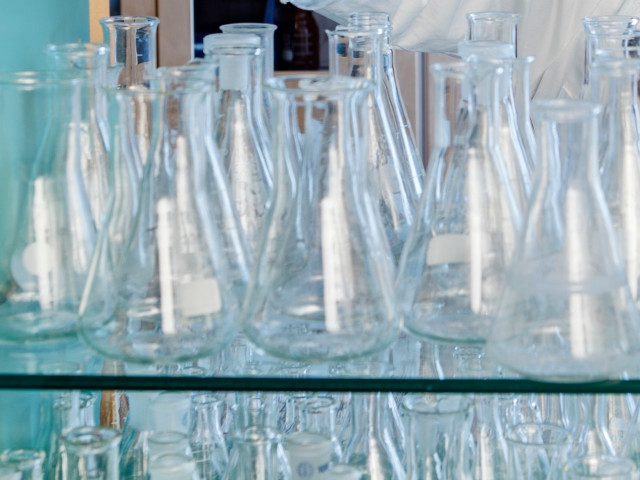The course covers lectures, information search, report writing, the fundamentals of business economics and leadership, as well as sustainable business development.
KA101X Degree Project in Chemical Science and Engineering, First Cycle 15.0 credits

Information per course offering
Course offerings are missing for current or upcoming semesters.
Course syllabus as PDF
Please note: all information from the Course syllabus is available on this page in an accessible format.
Course syllabus KA101X (Spring 2015–)Content and learning outcomes
Course contents
Intended learning outcomes
The degree project should provide the student with insight into a current research or development project in chemistry and chemical engineering.
After approved course the student should be able to:
- Apply relevant knowledge and skills in chemistry and chemical engineering that he/she has gained during the studies at KTH on a defined problem
- Within given boundaries independently analyze and discuss assignments and solve extensive problems within chemistry and chemical engineering on a fundamental level
- Reflect, assess and critically review own and others´ scientific results
- Document and present the work with demands on structure, formalization and language correctness
- Identify the needs for further knowledge and take the responsibility for his/her knowledge development
- Perform an advanced literature search
- Discuss principles of business economics with both engineers as well as non-engineers
- Have an insight into the prerequisites that are needed for a modern leadership
- Be able in the degree project to identify and develop a business plan that includes sustainable business development.
Literature and preparations
Specific prerequisites
The upper-secondary school before 1 July 2011 and adult education at upper-secondary level before 1 July 2012 Specific entry requirements: mathematics E, physics B and chemistry A. In each of the subjects the grade required is Passed or 3.
The upper-secondary school from 1 July 2011 and adult education at upper-secondary level from 1 July 2012 (Gy2011) Specific entry requirements: Physics 2, Chemistry 1 and Mathematics 4. In each of the subjects the minimum grade required is Pass.
And the specific requirements of mathematics, physics and chemistry corresponding to Mathematics E, Physics B and Chemistry A, and 120 university credits (hp), within the Degree Programme in Chemical Science and Engineering, or equivalent
_In addition to these requirements is also required:
_A total of 120 credits to be completed, of which a total of 90 credits from study year 1 and 2, which at least 50 credits from study year 1.
To apply for a degree project starting in period 3 requires that a majority of studies, at least 105 credits ( of which a total of 90 credits from study year 1 and 2, which at least 50 credits from study year 1) of the mandatory courses in the Degree Programme in Chemical Science and Engineering/ Engineering Chemistry are completed no later than after period 1 study year 3.
Recommended prerequisites
120 hp of courses in the first cycle, study year 1-3, should be approved.at the degree programme in Chemical Science and Engineering.
Literature
Scientific articles
Examination and completion
Grading scale
Examination
- XUPP - Examination Question, 15.0 credits, grading scale: A, B, C, D, E, FX, F
Based on recommendation from KTH’s coordinator for disabilities, the examiner will decide how to adapt an examination for students with documented disability.
The examiner may apply another examination format when re-examining individual students.
If the course is discontinued, students may request to be examined during the following two academic years.
Other requirements for final grade
Written report, oral presentation and opposition on another degree project report on first level. The report should preferably be written in Swedish.
Examiner
Ethical approach
- All members of a group are responsible for the group's work.
- In any assessment, every student shall honestly disclose any help received and sources used.
- In an oral assessment, every student shall be able to present and answer questions about the entire assignment and solution.